'It was a lifelong goal to ... wear the blue beret'
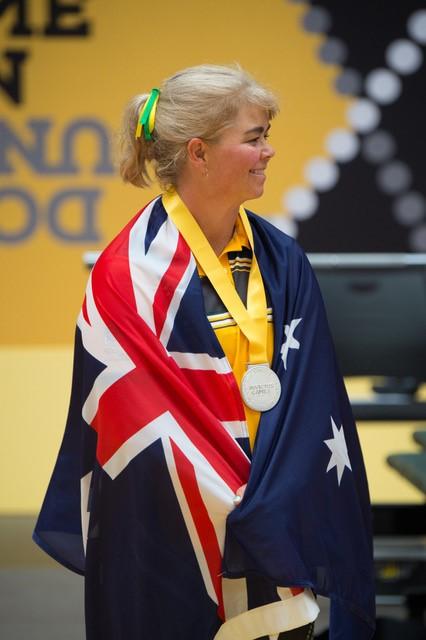
Retired Army Major Nicole Bradley: "Coming to Invictus was really about finding a new me … and it’s something I'll be forever grateful for." Photo: Courtesy Nicole Bradley
Every Anzac Day, Nicole Bradley would visit the Australian War Memorial in Canberra to attend the Dawn Service with her family.
Her father, Robert Bradley, had served in Vietnam, and her great-grandfather, Robert Daniel, had been awarded the Military Medal for bravery at Mont de Merris in France in April 1918.
“The whole ANZAC legend was an important part of my growing up,” Nicole said.
“My father was a Vietnam veteran and my great-great grandfather served in the First World War. His picture always loomed fairly large in my Nan’s house, and so we always knew of him, and his story, so I guess it seemed to a natural fit to join the army.
“We were always inside the Memorial on Anzac Day growing up, and I remember vividly standing there and seeing the [Royal Military College] cadets [from Duntroon].
“So I guess the idea of serving sat really nicely with me right off the post.”
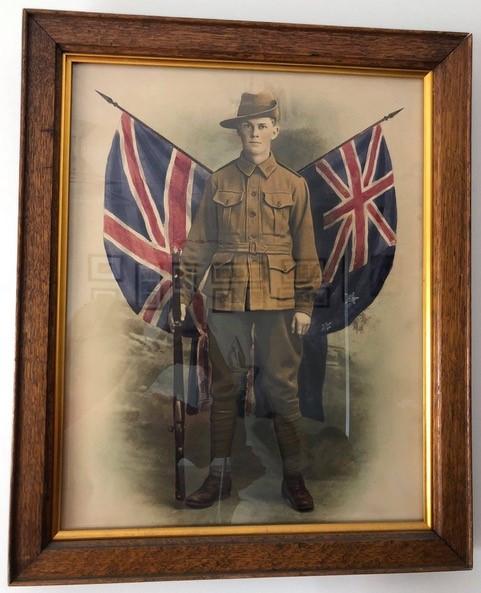
Nicole's great-grandfather Robert Daniel served with the 3rd Battalion during the First World War. He was awarded the Military Medal in April 1918. Photo: Courtesy Nicole Bradley
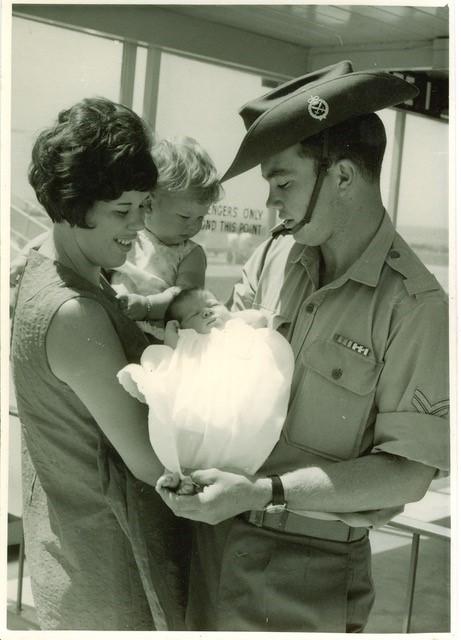
Nicole's father Robert Bradley served in Vietnam and with the UN Peacekeeping Force in Cyprus. He is pictured coming home from R&R, meeting Nicole's middle sister Karen for the first time, in 1969. Photo: Courtesy Nicole Bradley
Inspired by her family’s history of service, Nicole joined the Australian Army in 1993. She studied arts at the Australian Defence Force Academy, before graduating from the Royal Military College, Duntroon, and becoming a logistics officer with the Royal Australian Electrical Mechanical Engineers.
She went on to serve with the United Nations Transitional Administration in East Timor (UNTAET) and the UN Truce Supervision Organization (UNTSO) in the Middle East. For Nicole, it was a dream come true. Her father had served with the Australian Federal Police in the UN Peacekeeping Force in Cyprus (UNFICYP), and Nicole had studied Year 11 and 12 there in Nicosia.
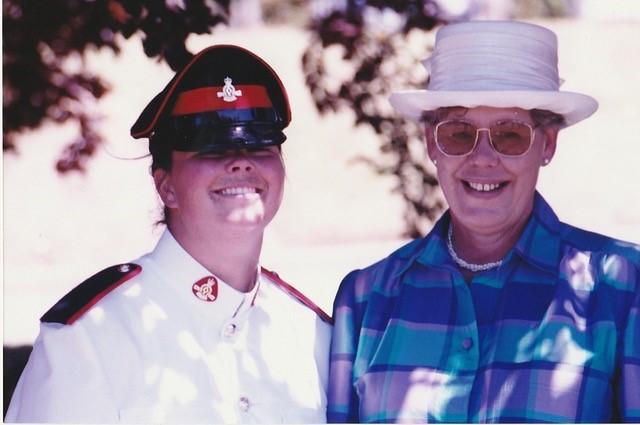
Nicole studied arts at the Australian Defence Force Academy, before graduating from the Royal Military College, Duntroon. Photo: Courtesy Nicole Bradley
“It was a lifelong goal to get to wear the blue beret,” she said.
“My Dad had served with UNFICYP in Cyprus, and he'd also been to Namibia, and on a number of other missions, so I really wanted to get an opportunity to do a UN mission.
“I went to East Timor in 2000, about two weeks before the Sydney Olympics started, and was in a UN headquarters in the southern part of East Timor, down in Suai.
“I was there for about seven or eight months, and I got to work with some extraordinary people…
“But there was one time that really sticks in my mind. The Australians were in contact and I was in the operations room. We could hear gunfire over the radio, and I remember us all just having our hearts in our throats, thinking, ‘Just be safe. Just be safe.’”
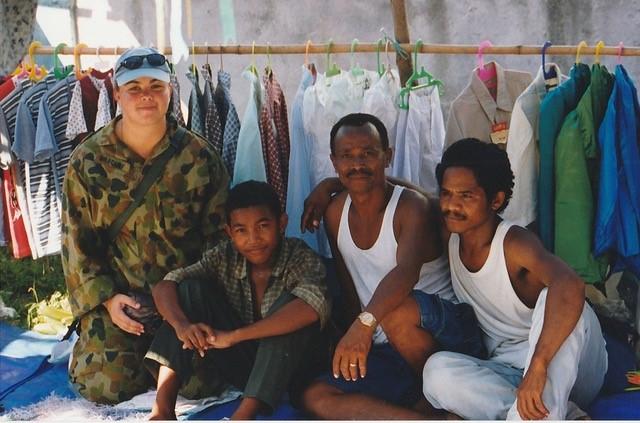
Nicole served in East Timor in 2000. Photos: Courtesy Nicole Bradley
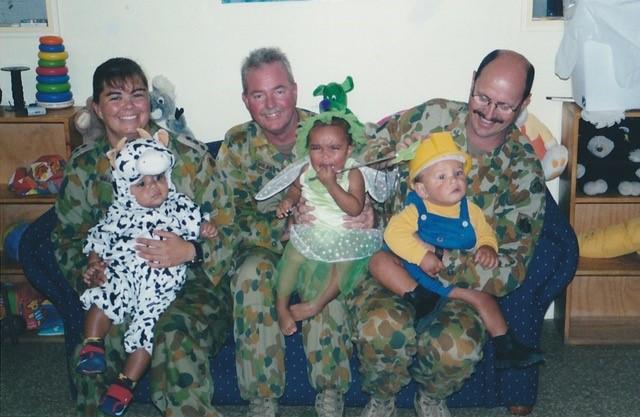
Nicole also served on Palm Island as part of the ATSIC/Army Community Assistance Program. Photo: Courtesy Nicole Bradley
Nicole wore the blue beret again in 2005, working as a military observer with the UN Truce Supervision Organization in Israel and southern Lebanon.
“It was tough at times, but it was really interesting, and I really loved it,” she said.
“We’d monitor the peace treaty … so I’d be on the Israeli side where there would be myself and an Italian guy, and we would cook and look after each other for a week.
“On the other side, I was living with another six nationalities, and we would be there looking after each other and doing patrols [as well].
“I worked initially in the Golan Heights, and the observational post, or OP, that I was on, was right under Mount Hermon.
“The Israelis had built this big fence along what they consider to be their border, so you’re quite isolated.
“You had to be escorted by the Israelis along the technical fence, and then they would let you in and out of the fence to get to your OP. They’d let you in and lock the gates behind you.
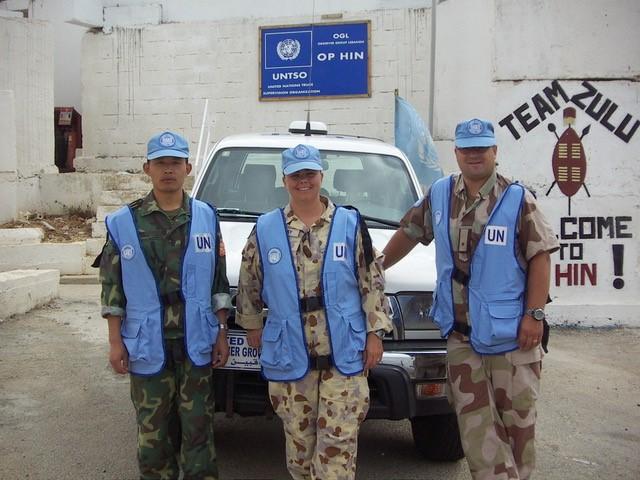
Nicole served in the Middle East with UNTSO. Photo: Courtesy Nicole Bradley
“Our OP was in the middle of a minefield, and every morning you'd be escorted out to go on patrol.
“We would be super careful not to go off the road, but the locals would just come along with their sheep.
“We used to have Syrian shepherds who would come along through the minefield with their animals.
“It was all a bit surreal. We were taking such precautions, but the locals just got on with it.
“It was just something you accepted; you knew it was there and that was just the way it was.”
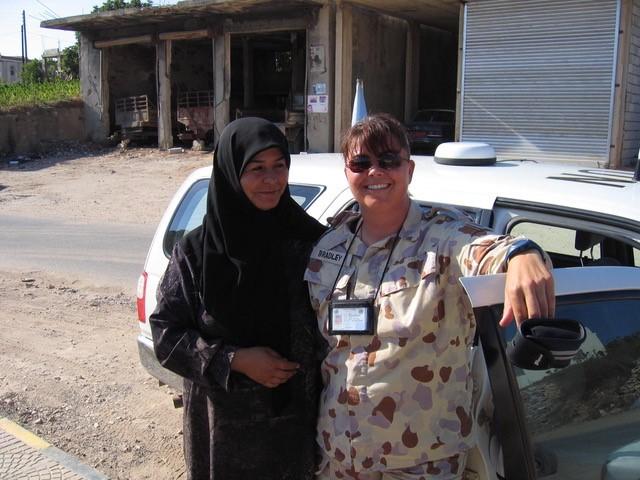
After six months working on the Golan Heights, Nicole moved to southern Lebanon, based out of Tyre.
“I was fortunate in that at the time I was there we only a couple of small incidents,” she said.
“We had an occasion where the Israelis and Hezbollah were fighting. I was actually working in the Command Post at the time, and we had people who were stuck by themselves on an OP while the shooting was going on. Again, I was in that position of hearing the radio traffic, just trying to keep people safe, and get them to where they needed to be, so that they could be as safe as possible.
“Then, when the Israeli–Hezbollah war started in 2006 we lost some really good friends. I was back in Australia by then, and Patrol Base Khiyam was destroyed, which was heartbreaking because there were people I really loved on that Patrol Base.
“I had a lot of tears, and I still do. It can be really hard to deal with that.”
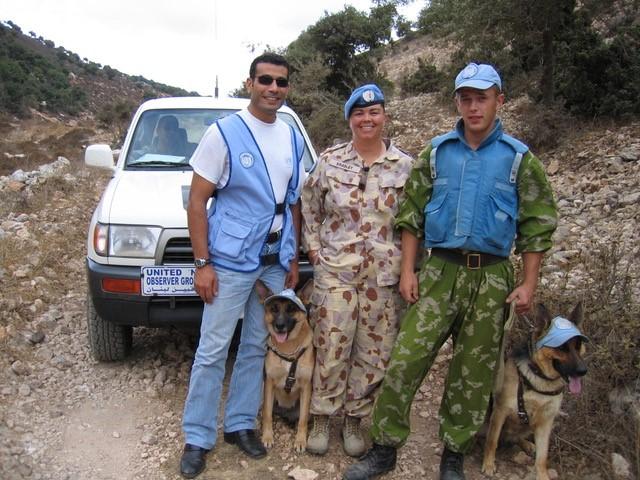
Nicole in southern Lebanon. Photos: Courtesy Nicole Bradley
In 2015, Nicole separated from the army, after 22 years of service. She had picked up compartment syndrome and a debilitating foot condition during her early training at ADFA and Duntroon, and later suffered from two bouts of deep vein thrombosis.
“The training that we do can be a bit of a shock to the system – carrying a lot of weight, a lot of repetitions, marching with packs, running in boots – and I got compartment syndrome,” she said.
“Later, I would do a five-kilometre route march with the recruits at Kapooka as Platoon Commander, and I would find it would take me maybe three days to recover, because of the impact of compartment syndrome.
“A few people were getting surgery when I was completing my training, but the condition was still fairly new and wasn’t really accepted; people would think you were putting it on.”
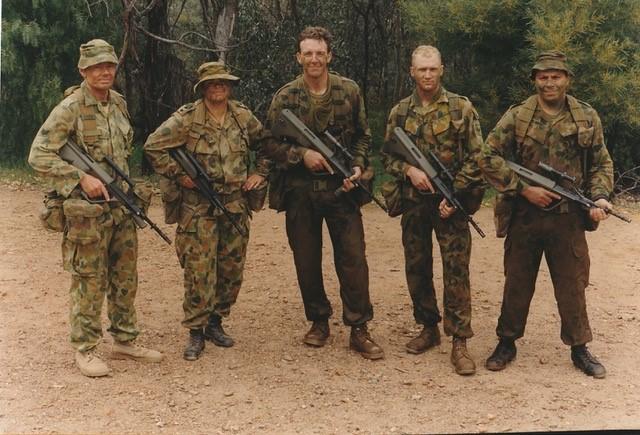
Nicole while serving as a Platoon Commander at Kapooka. Photo: Courtesy Nicole Bradley
While surgery in 1999 helped relieve the swelling and pressure on her anterior compartments, Nicole suffered a deep vein thrombosis while pregnant with her first child in 2007, and another 18 months later.
When Nicole left the army, her confidence took a “real knock”.
A lifelong hockey player, she turned to her family and her love of sport. She took up powerlifting at the suggestion of her rehabilitation coach, breaking records in her very first competition and winning gold at the 2017 Warrior Games in Colorado Springs.
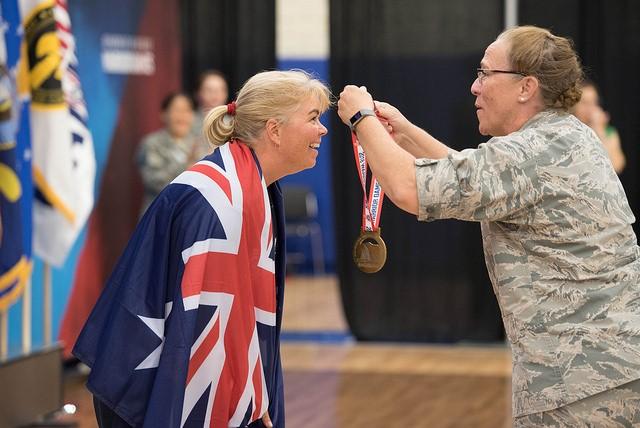
Nicole represented Australia at the Warrior Games. Photo: Courtesy Nicole Bradley
“I’d never won a gold medal in anything in my life, and it was amazing,” she said.
“For the first time in years, I felt like I had been seen just for me, and that I was doing okay as an individual. I wasn't my kid's mum; I was just me.”
In 2018, Nicole was selected to represent Australia at the Invictus Games, an international sporting event for wounded, injured and ill veterans and active service personnel, which was founded by the Duke of Sussex.
“I applied for the team, and honestly, it was really daunting,” she said. “I was doing athletics and powerlifting and the very first [training] camp I was invited to, was for athletics. I was so scared, I didn't go. It was just too much … and I was so stressed out by the prospect. The very next weekend was powerlifting, and I'd never been so stressed in my life, but I went, and it was so good.”
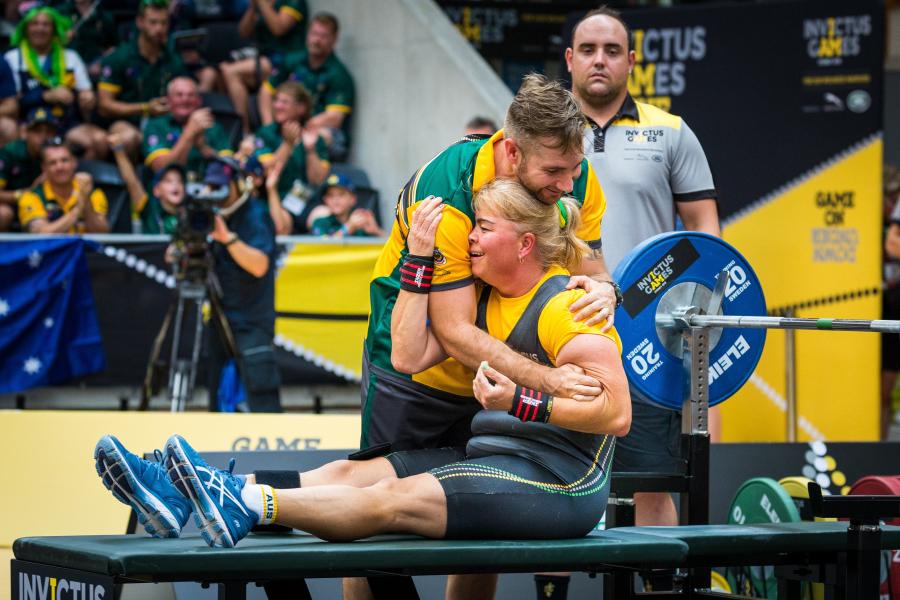
Nicole hugs her coach, Brian Heilbronn, after competing in the Women’s Midweight Powerlifting event at the Sydney Invictus Games. Photo: Courtesy Defence
Nicole was appointed co-captain of the Australian Invictus Games team in Sydney, an opportunity for which she is “eternally grateful”.
“When you are part of a big machine like Army, if you get an injury, it can be really isolating,” she said. “Having the amazing honour of being named a team captain [in 2018] has shown me that I’m really valued, that I’m a real person and people have faith in me.”
She wants to use her experiences to help others.
“When I left the army I didn’t know what work I was going to do, how I could define myself or what skills I could use,” she said. “It was such a big part of your life … it was really strange at the end.
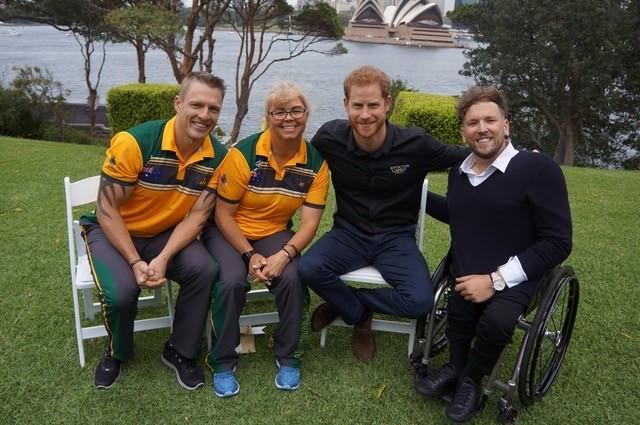
Nicole with fellow veteran Matt Model, the Duke of Sussex, Prince Harry, and Dylan Alcott. Photo: Courtesy Nicole Bradley
“I had little to do with the veterans’ community before the Invictus Games, but [in 2018] I marched on Anzac Day for the first time. It was about feeling like I had a place.
“Often female veterans, particularly, don’t feel as accepted, partly because we’re not seen to match the stereotype of what the Australian soldier looks like.
“It can be really hard. [But] the best thing about Invictus is that nobody cares what your story is; however long you've served and what you went through is irrelevant.
“We're all there for the same thing, and that's to improve ourselves and be the best we can be.
“It’s given me a real boost. I've become part of a community that I never knew even existed, and it allowed me to develop the courage to try new things.
“When I go to the gym, and I have a good training day, it sets me up for a couple of days... All of a sudden, the body is doing what you want it to do, and all the training that you’ve done before has paid off. And that’s amazing. I love it.”
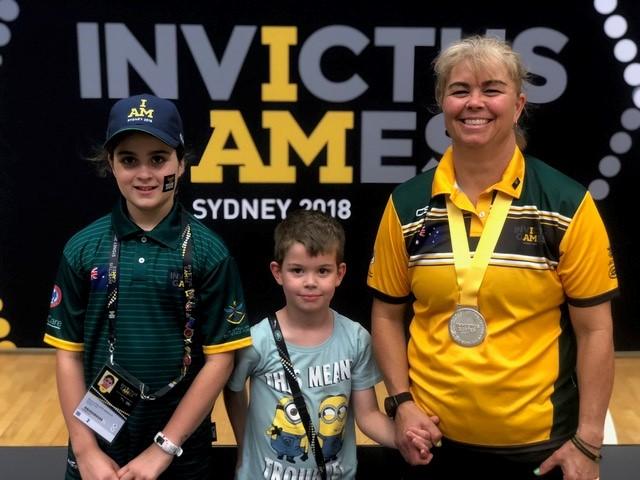
Nicole at the 2018 Invictus Games with her children Darcie and Lachlan. "I just want my kids to see that … women can be strong, and can go and do new things. It’s okay to not be perfect … you just go and give it a go." Photo: Courtesy Nicole Bradley
A retired army major, Nicole now works as a counsellor in Brisbane. She is a passionate about the healing power of sport and the importance of sharing the stories of modern veterans and their families.
“I realised that my best work in army was always with people, so counselling just seemed to be a natural fit for me,” she said.
“I keep reminding my clients that so often we fear not being good at something so much that we just don't try, but the thing is, you don't have to be good at anything to get something from it. It’s about the learning, and the process; it's not necessarily about winning anything, or being great at anything.
“As a mum, I just want my kids to see that … women can be strong, and can go and do new things.
“It’s okay to not be perfect … you just go and give it a go …
“Coming to Invictus was really about finding a new me … and it’s something I'll be forever grateful for.”
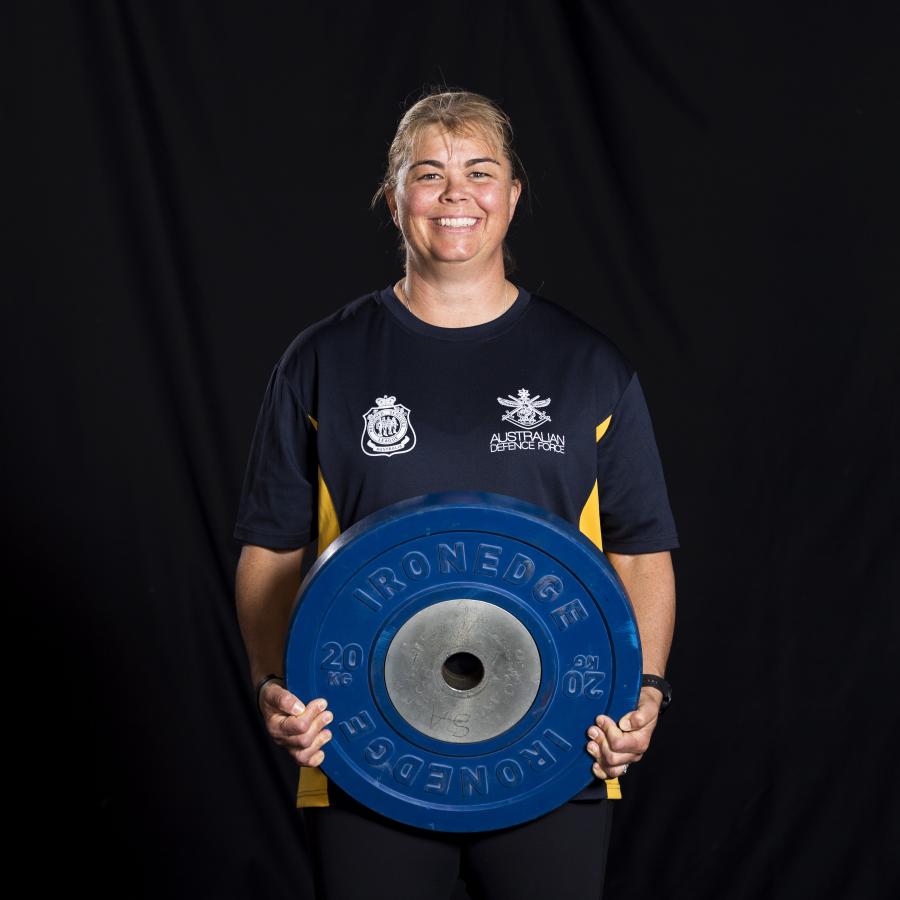
Nicole Bradley: "I've become part of a community that I never knew even existed, and it allowed me to develop the courage to try new things." Photo: Courtesy Defence
Today, Nicole is proud of her service, and her family’s military history. She visits the Memorial whenever she can, and is a passionate advocate for modern veterans and their families.
“I’m tearing up even now,” she said.
“I spent a lot of time there as a kid because of my family, and having all those Dawn Services here, it still holds a very special place in my heart; it always will.
“My story is completely unremarkable. But I think it’s really important to capture everybody's stories.
“Everybody’s experiences are very different, and we need to recognise the people who work behind the lines as well, because it's a really rich part of Australia's history.
“I still cherish my time in the army, and sometimes I marvel at the stuff that I did because I'd be too scared to do it now.
"I really cherish those memories and I hope I don't lose them in a hurry.”
The Invictus Games begins at The Hague on 16 April 2022. For more information about Invictus Australia, visit invictusaustralia.org
The Australian War Memorial has worked with veterans and their advocates to commission a work of art to recognise and commemorate the suffering caused by war and military service. The sculptural installation, For Every Drop Shed in Anguish, by artist Alex Seton, will provide a place in the Memorial’s Sculpture Garden for visitors to grieve, to reflect on service experiences, and to remember the long-term cost of war and service. A field of sculpted Australian pearl marble droplets, it will be made by the artist over the next two years and installed in the Sculpture Garden in 2023. For more information about the Sufferings of War and Service sculpture, visit here.